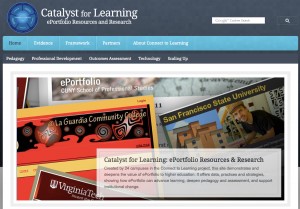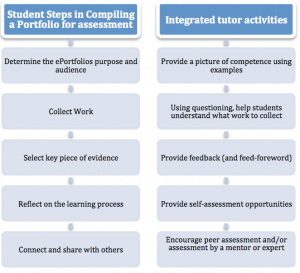Reflection is a key area of learning portfolios, yet it is a concept that is not always explored sufficiently when developing learning portfolio projects. The following handout developed by Kyle Nelson provides an introduction to critical reflection. Please take a few moments to go through it before the workshop. Reflection Session Handout CoP 2014 September
What: What is reflection
‘active, persistent, and careful consideration of any belief or supposed form of knowledge in the light of the grounds that support it and the further conclusions to which it tends’ (Dewey 1933: 118)
So What: Why does reflection matter?
In the context of Portfolios reflection can serve to help students consolidate their knowledge, provide ‘glue’ to ePortfolio artifacts and help create a story of knowing (context for them). It also can deepen and broaden learning, facilitating learners analyzing, integrating and synthesizing information
Reflective pedagogy transforms ePortfolio from a push-button technology into an engaging process of connection, linking students’ academic learning and life experience to the most profound processes of personal growth.
(C2L)
Now What: Resources
- Reflection, Learning and Education, INFED, Provides a useful introduction to reflection
- Reflection, Integration, and ePortfolio Pedagogy : Essay from C2L outlining reflective pedagogy in ePortfolio projects

